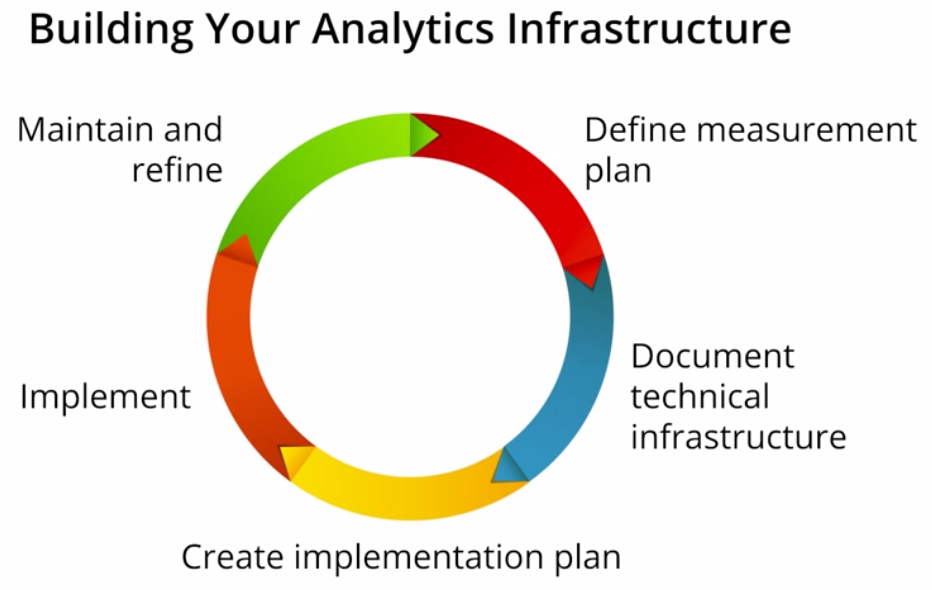Creating a measurement plan
- Learn the five-step process for creating a measurement plan to track your online performance
- Define meaningful goals, targets and segments
- Understand how your business objectives will influence what you track in Google Analytics
Measurement Life Cycle
The measurement planning cycle consists of the following:
- Define your measurement plan.
- Document your business objectives.
- Identify the strategies and tactics to support the objectives.
- Choose the metrics that will be the key performance indicators.
- Decide how you’ll need to segment your data.
- Choose what your targets will be for your key performance indicators. Create an implementation plan.
 |
|---|
| The lifecycle of creating and maintaining your data analytics infrastructure |
We will use the measurement process created by Avinash Kaushik. The model created by him starts with the business objectives. This model will work with small business to large enterprises.
- Step 1: Document business objectives
- Step 2: Identify strategies and tactics
- Step 3: Choose KPIs
- Step 5: Choose segments
- Step 4: Choose Targets
After defining your business needs and documenting the technical environment of your business, create an implementation plan that is specific to the analytics tool that you’re using. For Google Analytics, this means defining the code snippets and specific product features that you’ll need in order to track the data defined in your measurement plan.
Implement your plan.
The next step is to have the web development team, or the mobile team, actually implement the tracking recommendations that you’ve made. Some website technologies will require additional planning, such as: Query string parameters Server redirects Flash and AJAX events Multiple domains and subdomains Responsive web design The most common features used in a Google Analytics implementation plan for a website: Implement the standard Google Analytics tracking snippet. This gives you the bulk of the data you need. Determine how to track your KPIs. You can do this using goal tracking and the ecommerce module if you are an ecommerce business. Use filters to normalize your data so that your reports are accurate and useful. Use campaign tracking and AdWords linking to properly track marketing campaigns. Use custom dashboards and custom reports to simplify the reporting process.
Maintain and refine. The final step of the measurement planning cycle is to maintain and refine your plan. Your business requirements and your technical environment can change over time. Without a team to maintain your measurement plan, your data won’t keep pace with your reporting needs.
Read further: